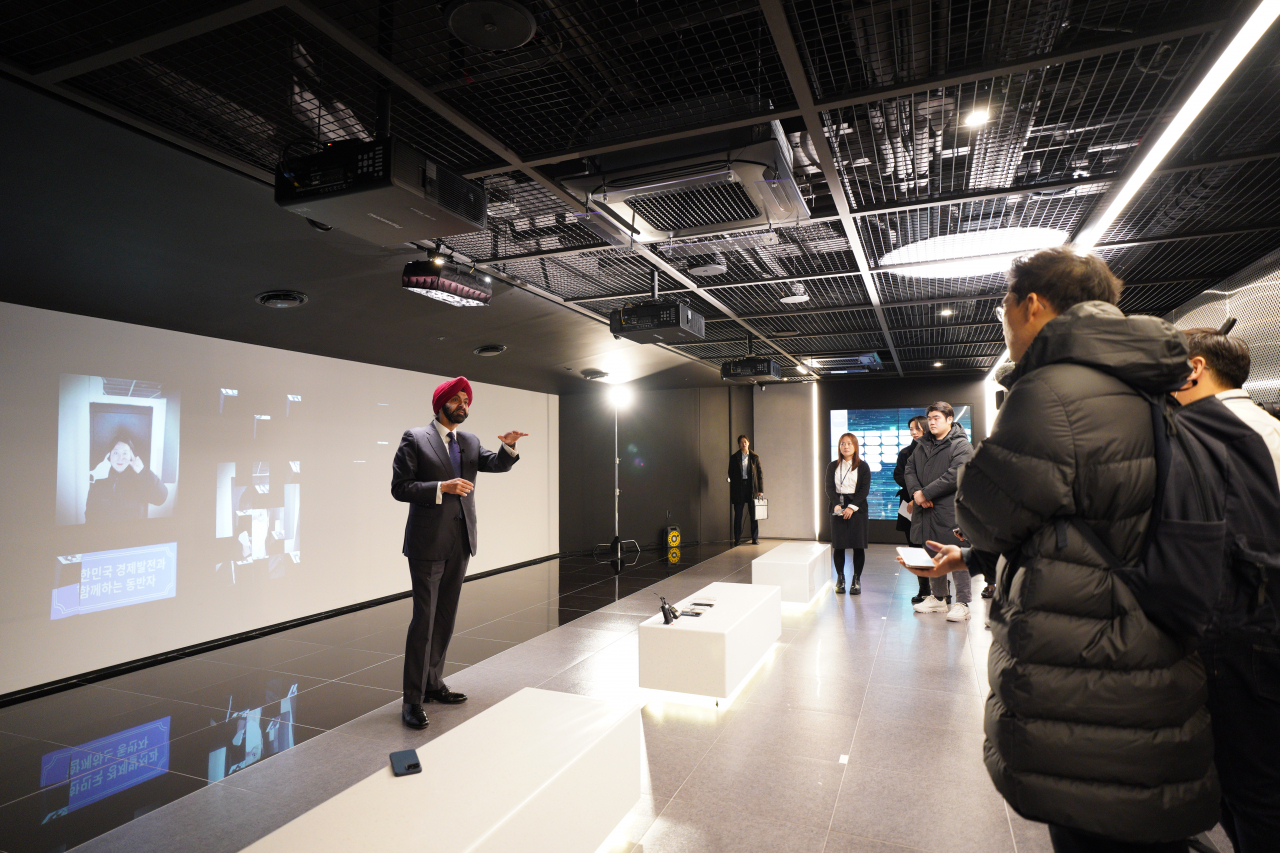 |
World Bank President Ajay Banga speaks at a media briefing held at the Global Knowledge Exchange & Development Center in northern Seoul, Thursday. (World Bank) |
World Bank President Ajay Banga stressed that South Korea can play a pivotal role in leading other developing countries with its experience in growth and development, during a media briefing Thursday as part of his visit to Seoul.
"What Korea did in 30 years -- to go from being an underdeveloped, challenged country, to having come through a crisis to come out like this -- was quite remarkable,” he said at the Global Knowledge Exchange & Development Center in northern Seoul.
“It is also interesting how one can see that in Korea, over the last 25 to 30 years, the use of technology has gone from just trying to duplicate what somebody else did to cutting-edge developments and innovations,” he said.
Banga, a former president and CEO of Mastercard, took the top post at the multilateral development bank in June 2023 for a five-year term. This week was the first time in more than five years for a World Bank president to visit Korea.
“Korea today is a very strong economy," he said.
“Korea has companies that have deep expertise in everything, ranging from shipbuilding, automobiles and chips to electronic gadgets and consumers,” he said, also mentioning artificial intelligence and sensor technology.
Banga further stressed that developing countries need the right framework, technology and access to financial and human capital to enable the development of a thriving economy.
“Korean banks and companies have great balance sheets, human capital and technology. These are all very important opportunities in the developing world,” he said.
He touched on the gender pay gap issue, which he pointed out to as one of many reasons for the extremely low birth rate here. Korea has been struggling with depopulation, and its number for 2023 is expected to come to 0.72, down from 0.78 in 2022. A birth rate of approximately 2.1 children born per woman in her lifetime is necessary for a stable population.
“The reality is we need growing populations in Korea to be able to keep and sustain the future,” he said. “If you do not ensure that women are compensated adequately for the burden they bear for enabling the population to grow, it leads to complexity.”
Banga took a look around the Global Knowledge Exchange & Development Center with its Executive Director Kang Dong-soo. The center showcases an exhibition on how Korea’s economy came to flourish over the years, overcoming the Korean War and the 1997 Asian financial crisis.
Korea's state-owned Land and Geospatial InformatiX Corp., known as LX, introduced its digital twin project that creates a replica of a city in virtual space based on closed-circuit camera recordings, weather, traffic and population data.
Banga pointed out that the technology could be useful for developing countries that are trying to expand their cities, as well as for reconstruction in war-torn areas such as Ukraine and Palestine.
As part of his visit to Korea, Banga also met with top policymakers, including President Yoon Suk Yeol and Finance Minister Choi Sang-mok.
“Korea’s plan to expand official development assistance to developing nations is excellent. Korea is a great example, considering it has become a high-income country that can contribute to development aid, (starting from a place as a) low-income country that receives help in just a single generation,” Banga said during his meeting with the Korean president on Wednesday, according to the presidential office.







